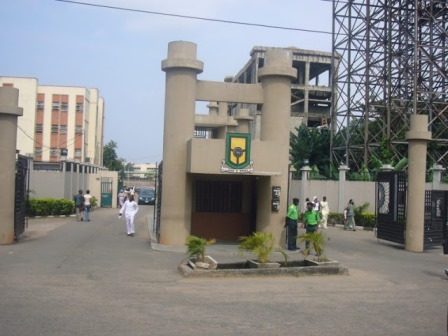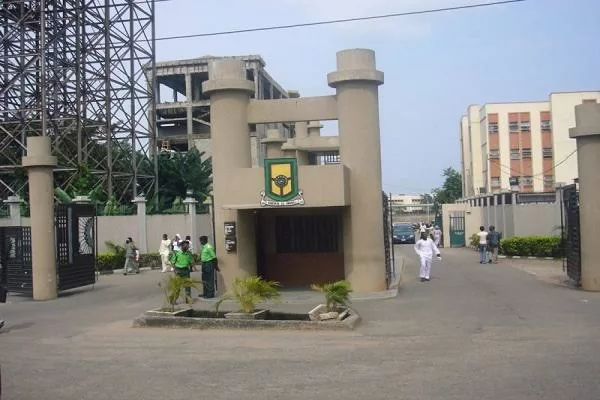Top 10 Best Nigerian Polytechnics To Study Mass Communication (2026)
Mass communication can be defined as the process of creating, sending, receiving, and analyzing messages to large audiences via verbal and written media. It is an expansive field that considers not only how and why a message is created, but the medium through which it is sent.

Studying mass communication as a course in any Nigerian polytechnic would afford you the opportunity to further you knowledge in any area of Journalism, Advertising, Public Relations, News-papering, Mass media, etc.
These mediums are wide-ranging, and include print, digital media and the internet, social media, radio, and television. Mass communication is multi-disciplinary in nature, incorporating elements of related fields such as strategic communication, health communication, political communication, integrated marketing communications, journalism, and more.
Polytechnics that offer mass communication are often regarded as higher institution of learning in Nigeria as it trains youth mostly with practical base knowledge. Universities on the other hand are theoretical and are often regarded as best academic institutions for studying mass communication as a course.
However, certain rules and guidelines are been set to regulate admission into the polytechnics which include the basic five credit o’level subjects from various exams such as WAEC, NECO, NABTEB, e.t.c. Joint Admission and Matriculation Board (JAMB) examination is also part of the requirement into Nigerian polytechnics with cut-off marks mostly set for polytechnic which always varies from 120-150 for yearly admission.
Top 10 Best Polytechnics To Study Mass Communication in Nigeria
1. The Polytechnic of Ibadan, Oyo state
This Nigerian polytechnic is one of the best academic institutions where you can study mass communication. You are only required to have credit in English language, 3 other subject from language, irs/crs, history, government, geography and a cut-off mark of 150 from JAMB(UTME).
2. Lagos State Polytechnic, Ikorodu
This school is also known as LASPOTECH and it has proven to be a good polytechnic that offers mass communication as course of study in the country.
This academic institution only requires Yoruba, Geography, English and any other Art/Commercial subject with a UTME cut off mark score of 150 as set by jamb.
3. Federal Polytechnic, Offa, Kwara State
This federal school requires literature as compulsory UTME subject combination and any other two subjects from Yoruba/Hausa/Igbo, Commerce/Government/Economics, Agriculture/Biology/Geography, IRS/CRS with an o’level of 5 credits in relevance to above subjects with a cut-off mark of 150.
4. Osun State Polytechnic, Iree
This is another accredited state polytechnic where you can study mass communication if you chose it as a course of study in JAMB. If you get 150 and above as UTME score, then you are good to go.
The school requires Yoruba, IRS/CRS at credit level. Also, they accept credit passes in Civic education/Government/History, Marketing/Economics/Commerce.
5. Kaduna Polytechnic (KADPOLY)
This Northern school is another institution that offers journalism and other mass communication related course. You are required to have a UTME score of 150 to get admitted.
They accept agriculture science in place of biology as course requirement with other relevant subjects to the course.
6. Yaba College of Technology, Yaba, Lagos
YABATECH is another top polytechnic offering mass communication in Nigeria as a course and requires mathematics, Literature in English and Government/History as UTME subject combination.
Also 5 subject O’level requirements including Mathematics, English, and any other 3 from the following: Government, Economics/Commerce, History, Literature in English, Yoruba, Hausa, Igbo, Fine Art, Biology, Physics, Chemistry, Principle of Accounting with a cut-off mark of 150.
Auchi Polytechnic
This school requires 150 as cut-off mark for UTME, and basic credits from English, Mathematics and Literature with other 2 relevant subjects to study mass comm or any other of its related courses.
Federal Polytechnic, Nekede
To offer mass communication as a course at Nekede, you are requires to have credit pass in one basic science subject and any other two from Government, Literature in English, Geography, Commerce, Economics, Igbo, CRS, Fine Art, History, Information Communication Technology with a UTME score of 150 as cut-off mark.
Rufus Giwa Polytechnic
This school requires credit pass in literature in English, mathematics, Yoruba, irs/crs with UTME cut off mark set at 150.
Abraham Adesanya Polytechnic, Ogun
AAP is the last best polytechnic to study mass communication as a course in Nigeria on our list and they require credit passes in subjects like Literature, Mathematics, English with any relevant subject.
JAMB UTME Requirements For Studying Mass Communication in Nigerian Polytechnics
In UTME, please note that English Language is compulsory for this course. Therefore, the three (3) other JAMB UTME subject combination needed to study Mass Communication in the above Polytechnics or Monotechnics include; Any three subjects from Arts/Social Science/Physical Science.
O’Level Subject Combination
The O’level subject combination and requirements needed to study Mass Communication in any Nigerian polytechnic include: English Language and Mathematics and any three other subjects from History, Literature in English, Economics/Commerce, Fine Arts, Government, Biology, Physics, Chemistry, Geography, Typewriting, Commerce/Principles of Accounting.
Possible Careers in Mass Communications
- Professor: Professors work at universities and colleges, conducting research into areas of interest in the field of mass communication. They also teach undergraduate and graduate communication courses, participate in campus service projects, serve on committees, advise and mentor students, and advance scholarship in the field.
- News Media Director: News media directors manage teams of journalists and the production of news stories. They possess an understanding of their readership and audience, create editorial calendars to address stories of interest, and oversee production of informative content around social, political, cultural, and economic issues.
- Journalist: Working under the supervision of news media directors, journalists find, investigate, and write about or report on important events or issues that are relevant to their readers. They employ not only the written word, but also multimedia and even interactive technology to develop stories that engage readers while educating them. Journalists often specialize within a given area of news media, such as politics, health, economics, or social issues.
- Web Content Specialist and Web Producer: Web content specialists, including social media specialists, search engine optimization (SEO) specialists and directors, and web producers, are experts in crafting engaging and informative content for online audiences. They typically manage one or more websites or online properties (such as social media accounts), and conceive of and implement content plans that address their target readerships’ interests. These professionals use search engine and web traffic analytics software to assess the performance of their website in terms of web traffic and reader engagement, and continually update their site’s content to ensure it stays relevant to their target audiences.
- Public Relations Director: Public relations directors manage the development and execution of strategic communication initiatives that help enhance a company or organization’s public reputation and manage a positive relationship with consumers, competitors, investors, and the press. They generally supervise a team of public relations staff and oversee development of media practices that align with the organization’s mission and values.
- Marketing Director: Directors of marketing manage the creation of multimedia advertising and other marketing assets that enhance brand reputation, engage consumers, and sell a product or service. These professionals also use marketing and consumer behavior analytics technologies such as search engine marketing analytics technology and customer relationship management software to inform their marketing strategies.
- Marketing Specialist: Marketing specialists work under the supervision of marketing directors to implement marketing and advertising campaigns. While marketing directors may design the concept for a new marketing plan, specialists execute on these plans by writing relevant and engaging content, creating videos and graphic designs to engage readers, and conducting regular consumer research to ensure that their marketing strategies remain relevant and up-to-date with the latest technologies and consumer preferences.

